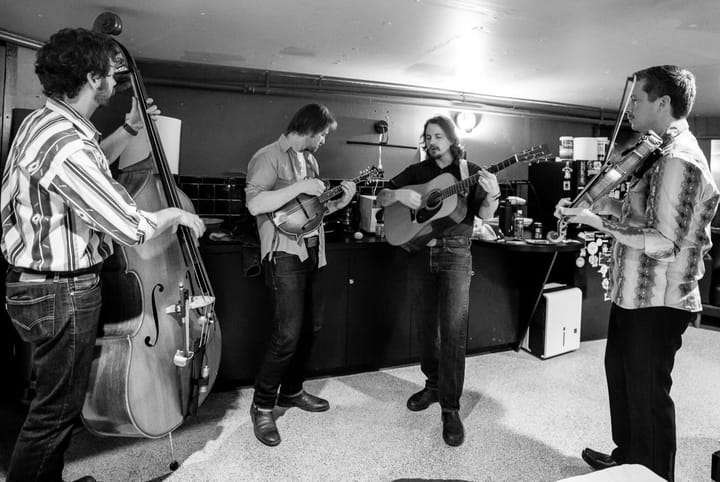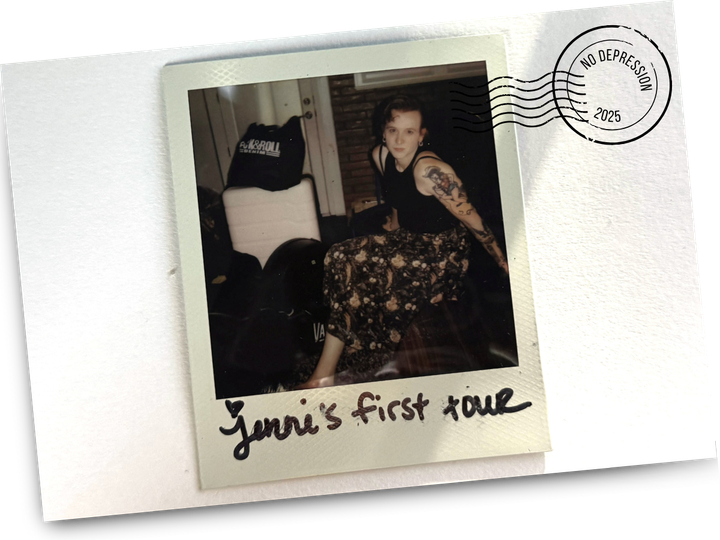It has been said that you can't swing a dead cat in Austin without hitting a good musician. Even so, it would take quite a few swings to tag an artist the likes of Justin Trevino.
Blind since birth, Trevino was born in Brownsville, Texas, at the southern tip of the state. His family moved to Austin when he was four. His father was an avid record collector; some of the household favorites were Kitty Wells, Lefty Frizzell, Johnny Cash, Ernest Tubb, and Tubb's son Justin. The Trevinos were such fans of Tubb, in fact, that they named their son Justin, too.
Justin was given his first instrument, a guitar, at age seven. "It didn't dawn on me at first that I wanted to be a singer," he says. "The guys were teaching me chords, and the only way for me to put those chords to use was to sing a song. At some point, I began to realize that you can entertain people.
"Then, when I got older, singing became more important -- the main focal point. I started paying attention to guys like Ray Price and Johnny Bush, and when I got old enough to know the difference, I was going, holy shit, these guys can really sing. That's the way I want to sing."
In 1995, Trevino visited the Brady Civic Center in Brady, Texas, to hear his namesake, Justin Tubb, play a show. A mutual friend, KNEL DJ Tracy Pitcox, introduced the two backstage after the show. In talking, the two singers realized they had a lot in common musically. Trevino played bass and knew Tubb's music thoroughly. By the end of 1995, Trevino was doing gigs with Tubb and his band.
Trevino released his debut solo disc, Texas Honky-Tonk, in 1998, with liner notes penned by Tubb. Tragically, Tubb passed away from a stomach aneurysm shortly after sending the notes to Trevino. In tribute to his friend, Trevino says he will record a Justin Tubb song on every CD he releases.
In fact, a Tubb tune, "Travelin' Singin' Man", is the title track to his new disc on Lone Star Records. The cut opens with an acoustic guitar and lush strings that immediately signal Trevino is more than a one-trick pony. The song recalls a time in the late '60s or early '70s when country music started to sweeten into countrypolitan -- yet with Trevino at the helm, you remember the merits of the music before it teetered over the edge.
Indeed, each song on Travelin' Singin' Man is a slice of country music history presented fresh and new. The disc opens with Mel Tillis' "All Right I'll Sign The Papers", a country shuffle driven by steel guitar and fiddle. Dueting with Trevino on two numbers is Johnny Bush; Trevino plays bass in Bush's band, and also with Austin honky-tonk hero Cornell Hurd.
The musicians Trevino plays with in his own band (he lives in the under-1,000 town of Martindale near Austin) are usually a mix of Austinites and San Antonians. His favorite musical period is the late '50s through the early '70s: "It was then that the country lyrics really started to get some meat to them," he says. "In the mid '70s, though, country music stopped sounding country. And that is where I lose interest."
As for the current crop of young country artists, Trevino says, "I try to be open-minded, because I am a new artist too, but it is hard to keep an open mind when you go through every country station on the dial and don't hear anything. You get jaded." He's quick to add, however, that he has received support from many of the smaller Texas radio stations.
When asked if he ever felt the urge to rebel against his parents' music when he hit the high school years, he simply says, "By the time I was a teenager, I was too much in love with the music to rebel."




Comments ()